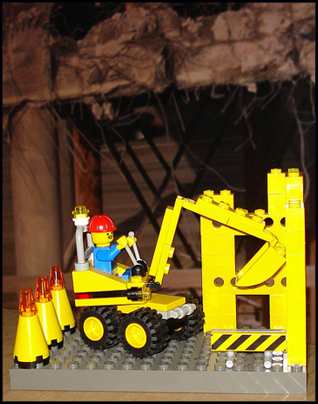
Around the country, some hearty efforts are being made to make the phrase “Homeless Veterans” obsolete. In Jewett City, Connecticut, the American Legion Veterans Housing, Inc. recently held a groundbreaking ceremony. Legion Post 15 is renovating its old building, and putting up a new building which will contain 18 one-bedroom apartments, an uncredited article tells us. These units are of the “supportive housing” variety.
Supportive housing basically means that the inhabitants, who have special needs, are not just left on their own. They have caseworkers, aides, and various other people watching over them. Regarding the physical plant, the plans include an energy-efficient thermal heating system, conference rooms, counseling rooms, offices, and an exercise room. William Czmyr, the organization’s president, is quoted as saying:
Seven years ago, at one of our meetings, we discussed the military creed ‘that no comrade is left behind.’ Today, as the culmination of that discussion, we are excited to break ground and see our dream for these deserving veterans become a reality.
David Abel, staff writer for the Boston Globe, recently profiled Vietnam veteran Tom Clark. Yes, there are still plenty of them around. The number of homeless veterans is not constant, but of that number, about half are Vietnam-era vets. Clark was getting ready to move into the Gordon H. Mansfield Veterans Community in Pittsfield, Massachusetts.
It’s apparently run like a condominium association, so the people who move in will build equity. There is a $2,500 deposit and the payments are as much as $740 per month. (Government words, the link is ours: “The amount of basic benefit paid ranges from $123 to over $3,100 per month, depending on your level of disability and number of dependents.” But financial help is available. And just across the parking lot, there are therapists and social workers. It’s not a just a building, it’s a community, with mental health and addiction services.
Soldier On was the group that set this in motion. This nonprofit organization has been providing shelter and services, and its president, Jack Downing, believes that the answer to homelessness is housing. Soldier On also plans to repurpose the state police training facility into another 120 housing units, and create even more housing in other locations.
Abel quotes a fellow from the U.S. Dept. of Veterans Affairs, Peter Dougherty, who directs the homeless veterans’ programs. He says,
There’s nowhere else like this in the country. It offers a unique opportunity to take veterans that have been homeless and turn them into homeowners. It really is an opportunity that has not happened in other places yet. We’re really interested in seeing how well it works.
In the southwest part of the country, we learn from Sadie Jo Smokey of The Arizona Republic, a plan will be unfolding over the next year and a half. Many veterans have less than $15,000 a year coming in, an amount small enough to ensure economic homelessness, the condition of people who can’t afford housing even though they have income. But the Arizona Department of Housing has done something about housing tax credits that will help encourage builders to construct apartments that these veterans can afford.
A complex called Madison Point (60 units in two buildings) is planned near the Veterans Administration medical center. Another development is planned that will include 75 apartments. Additionally, Smokey’s account also tells of a home for women veterans called Mary Ellen’s Place:
Named in honor of the late Mary Ellen Piotrowski, former chairwoman of Unified Arizona Veterans, the Sunnyslope community calls for 16 apartments that would rent for $250 month.
These are a few of the encouraging signs that the nation is becoming more conscious of the need to house veterans. Of course, those who are able to work need to make a living wage, and we encourage the adoption of the Universal Living Wage, as outlined by Richard R. Troxell in Looking Up at the Bottom Line. The Universal Living Wage would end homelessness for more than a million minimum-wage workers, and prevent economic homelessness for more than 10 million minimum-wage workers.
Reactions?
Source: “Homeless veterans housing project gets under way in Griswold,” TheDay.com, 11/16/10
Source: “A haven for homeless veterans,” Soldier On, 11/08/10
Source: “Availability of affordable housing rentals to increase for veterans,” AZCEntral.com, 12/18/10
Image by Bucklava (Buck), used under its Creative Commons license.


